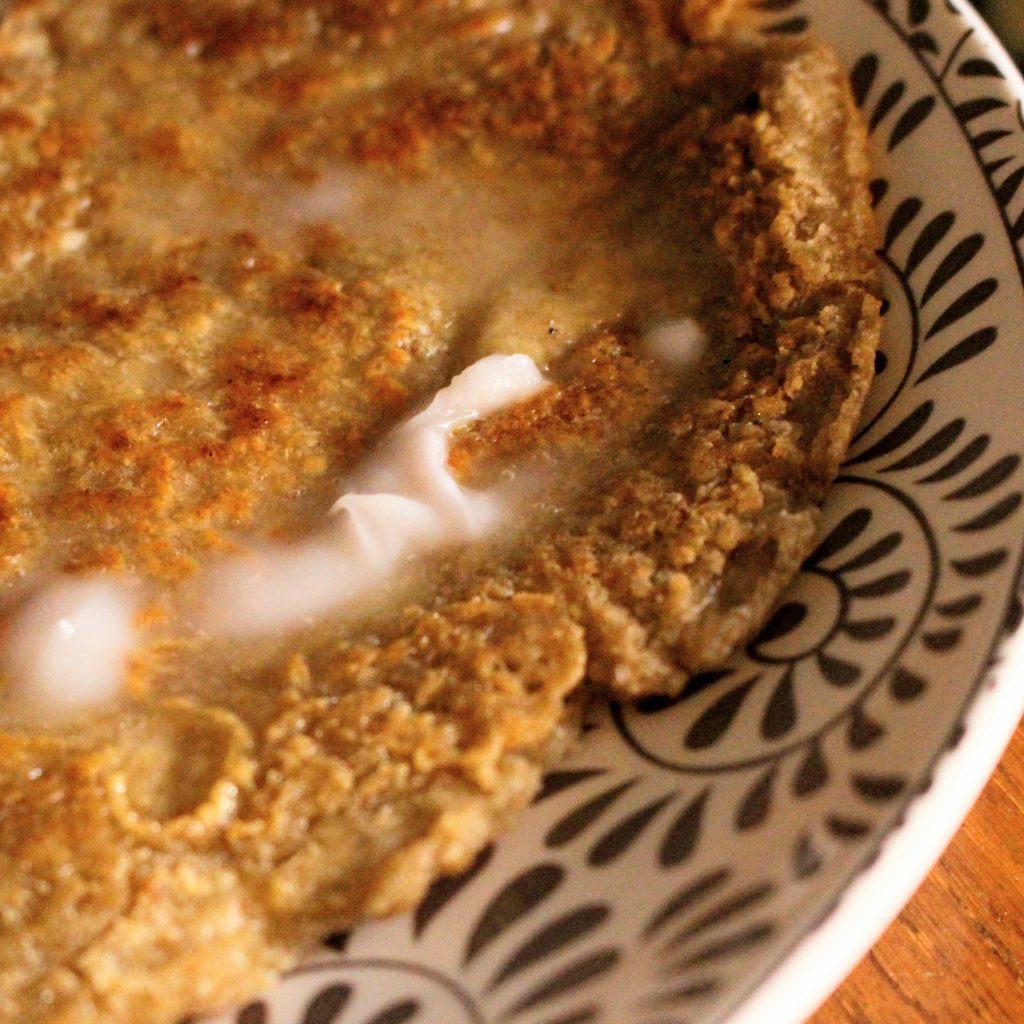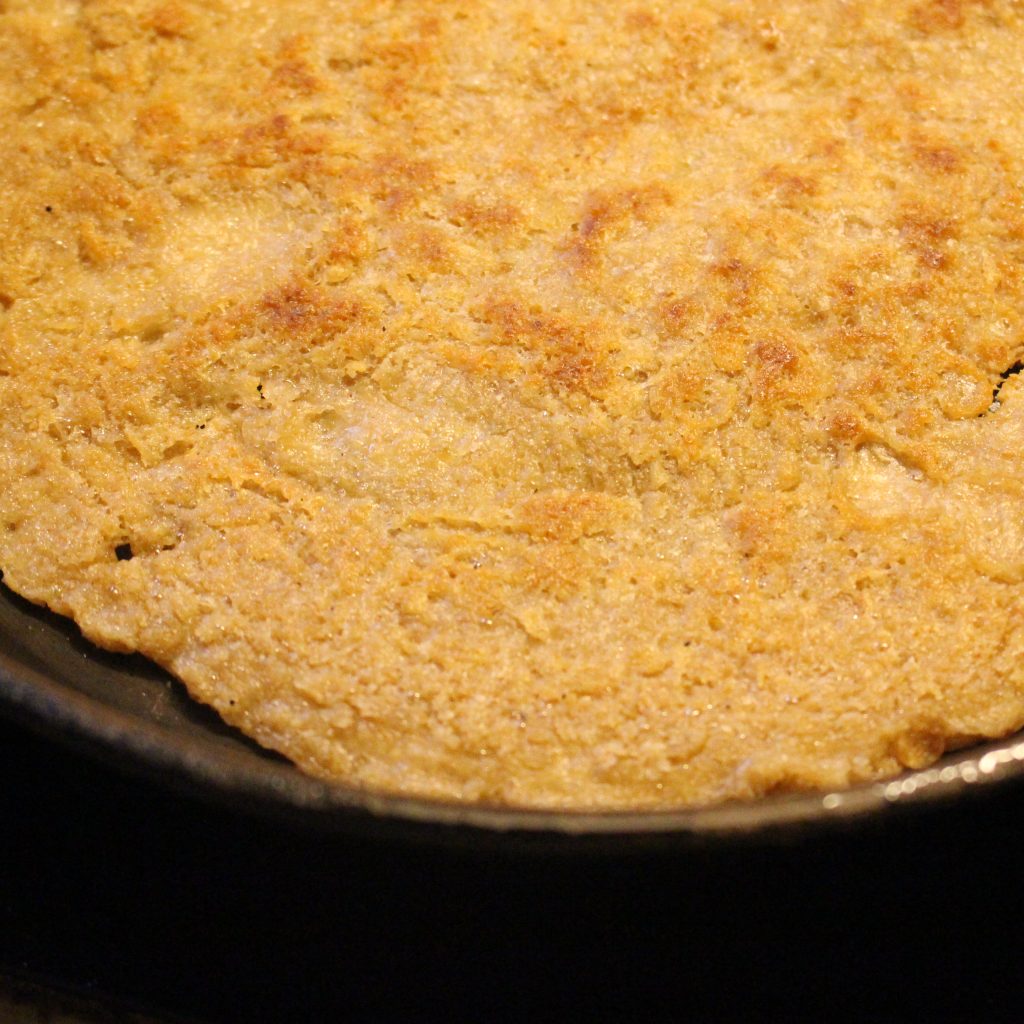These oatcakes have been a staple way to start the day in the north of England for centuries and are traditionally made thin and pliable, like pancakes, and then stuffed with breakfast foods such as eggs, bacon and sausages.

When they became popular in the 1700s, women had cottage industries selling them to workers from their kitchen windows. And today they are still a regional staple, with dedicated shops opening their doors at 5am to feed locals.
These days, they are made with commercial yeast, but originally they were fermented in wooden barrels that were used for the batter over and over again – their sides becoming impregnated with wild yeasts and bacteria.
Here’s a fun sourdough version that uses 100% oat grain:
Naturally-Fermented Staffordshire Oatcakes
Ingredients:
200g very fine oatmeal or oat flour (you can make this by grinding oat flakes in a high-powered grinder)
250g water
Tbsp sourdough starter (you can substitute any active starter – milk kefir, apple cider vinegar etc.)
Pinch of salt
Makes 4 pancakes – the method below is written for a cast iron pan that is 20cm/8inches across.
Method:
- In a bowl, mix together the oats/oat flour, water and sourdough starter well.
- Cover and leave on the counter to ferment. How long you leave is up to you – anything from a few hours to overnight. The longer you leave the mix, the more fermented and sour it will become.
- When you are ready to cook, pre-heat your cast iron pan. Put it on medium/medium-high and allow it to get hot (for me this takes a good 10 minutes).
- Add a pinch of salt to your batter and stir it well.
- Add a generous knob of fat to the pan (I use lard).
- Using a large spoon, ladle about a quarter of the batter into the pan, encouraging it to cover the pan by spreading it in a circular motion with the back of the spoon.
- Cook until the upwards-facing surface looks dry (about 6-8 minutes) the flip the pancake and cook till golden brown on both sides.
- Serve warm!

You can refrigerate the uncooked batter for a few days if you are not ready to use straight away. You can also reheat leftover oatcakes in a warm pan and enjoy later!
*****
If you’d like to explore the way the Scottish traditionally fermented their oats into a creamy, easy-to-digest porridge and a tangy probiotic drink, check out my course Sowans: The Scottish Oat Ferment here!



Hi Alison!
I made this recipe today and have a few questions (they tasted delicious by the way!). I ground up sprouted oats in my food processor and I am wondering if my oat flour wasn’t “fine” enough- my batter came out extremely thick (after ~3 hours of fermenting) and so when I went to cook the batter on my cast iron, the batter was too thick to spread throughout the pan. I added a little raw milk to make a runnier consistency which seemed to help but I am not sure if that is the right thing to do… thanks so much!
Hi Julie,
This is a fine thing to do. The flour varies so much in how much water it can soak up. If my batter is too thick, I add more water. Better to do it this way around then have it too runny. I’m really glad you enjoyed the oatcakes!
These savory delights blend tradition with innovation, offering a unique twist to your breakfast. The natural fermentation process lends a distinctive flavor and texture, creating a delightful experience for your taste buds. Elevate your breakfast game with these Staffordshire treasures!